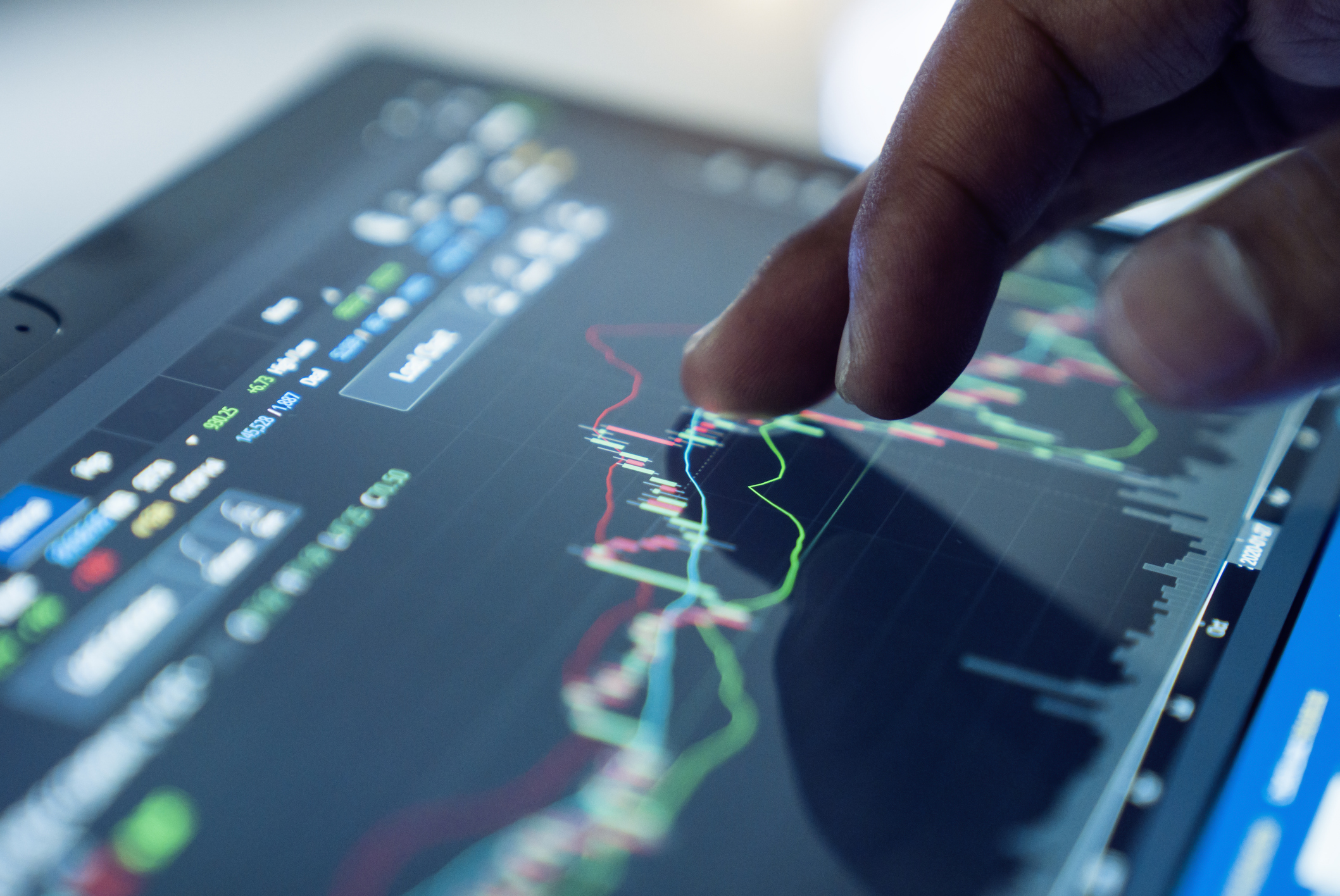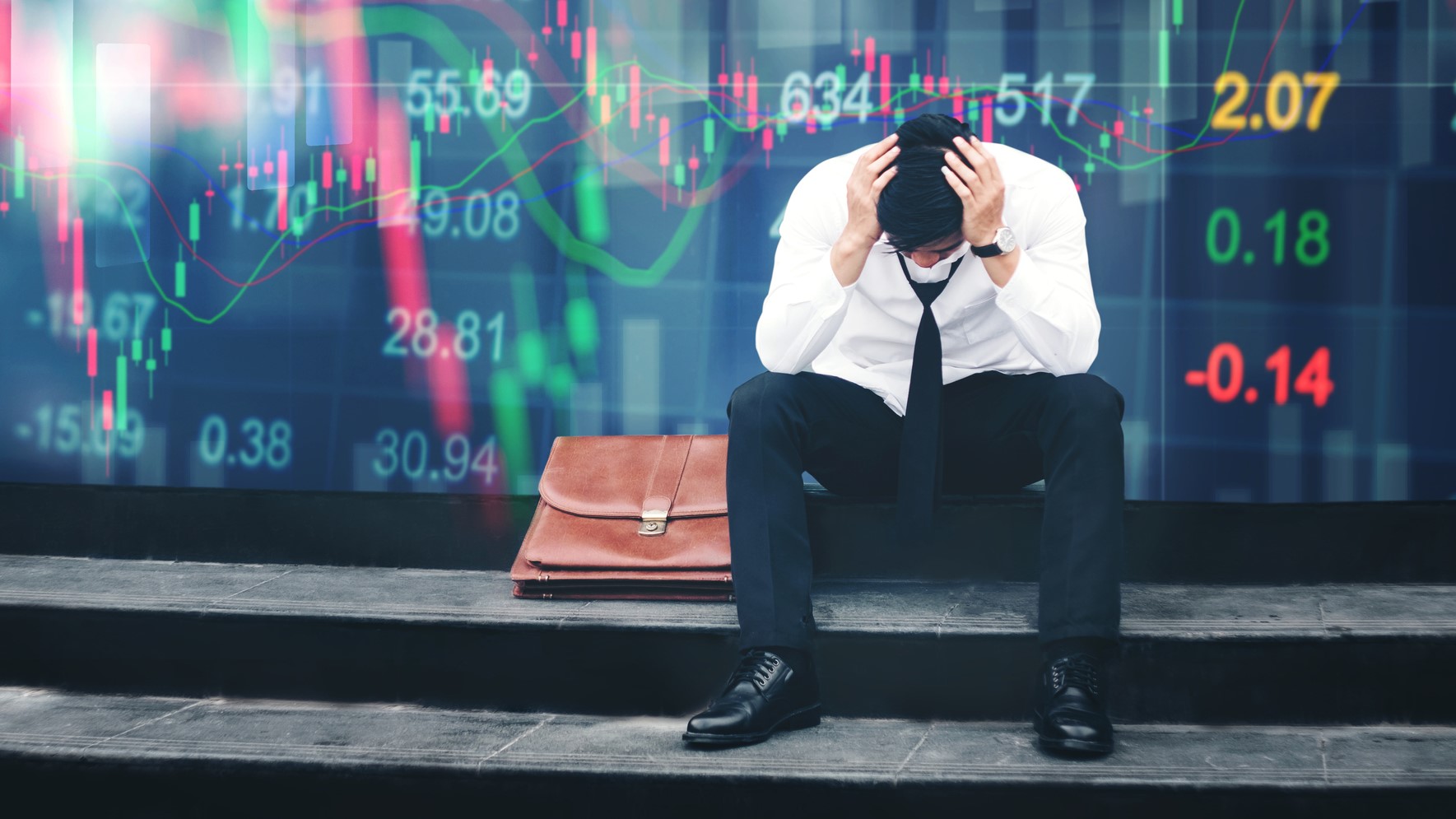Where will markets be in 2030? Here are 20 forecasts for the 2020s
A lot has changed in the last ten years – stockmarkets soared, technology transformed our lives and politics has changed beyond measure. Here, Dominic Frisby predicts what might change in the next decade.


Get the latest financial news, insights and expert analysis from our award-winning MoneyWeek team, to help you understand what really matters when it comes to your finances.
You are now subscribed
Your newsletter sign-up was successful
Want to add more newsletters?

Twice daily
MoneyWeek
Get the latest financial news, insights and expert analysis from our award-winning MoneyWeek team, to help you understand what really matters when it comes to your finances.

Four times a week
Look After My Bills
Sign up to our free money-saving newsletter, filled with the latest news and expert advice to help you find the best tips and deals for managing your bills. Start saving today!
In early January 2010, the S&P 500 was sitting at 1,100. Memories of the financial crisis and fear that another was around the corner were foremost in investors’ minds.
Here we are, ten years later, and the S&P has almost tripled. Amazon shares traded hands for $110 apiece. Today they are $1,900. Facebook was not even listed.
I didn’t have 4G; the house I lived in didn’t have smart meters, or Alexa, or Netflix. The word ‘Brexit’ didn’t even exist, and Gordon Brown was prime minister. A lot has changed.
MoneyWeek
Subscribe to MoneyWeek today and get your first six magazine issues absolutely FREE

Sign up to Money Morning
Don't miss the latest investment and personal finances news, market analysis, plus money-saving tips with our free twice-daily newsletter
Don't miss the latest investment and personal finances news, market analysis, plus money-saving tips with our free twice-daily newsletter
“Most people overestimate what they can do in one year and underestimate what they can do in ten years,” runs the famous saying, usually attributed to Bill Gates.
In other words a great deal can happen in a decade. So I thought today I’d make twenty predictions for the 2020s.
Twenty predictions for the 2020s
Many of these predictions will turn out to be hocus pocus, I’m sure. But I hope you’ll find them thought-provoking nonetheless.
1. On the S&P 500: the bonanza of 2010s came off a very low base. Today’s price of 3,300 is rather more elevated than the 2010 starting point, so the probability of the index doing a near-triple over the next decade is lower. Over the previous decade the S&P 500 actually lost 30%. The 2020s turn out to be a good, but not amazing decade. The S&P exceeds 6,666 – ten times higher than the infamous 666 crash low of 2009.
2. Not once in the decade does the UK see a Labour government.
3. The pound enjoys a bull market in the early part of the decade, and goes above $1.50, but, due largely to excess government spending and mismanagement, crisis then hits the currency, so that by 2024-2025 it is re-testing its 2016 crash lows (thus proving Frisby’s Flux correct once again, conveniently enough).
4. Individual, portable jet-pack flying devices are a thing.
5. Over the course of the 2000s, gold more-or-less quadrupled. It has not begun the 2020s off 20-year lows as it did back then, but it has a good decade nonetheless and breaks the $5,000 an ounce barrier.
6. Does bitcoin disappear? Or does it go above $100,000? I think you know the answer to that one.
7. Currently fossil fuels – oil, coal and natural gas – are the ultimate source of over 80% of the world’s energy, according to BP. For all the advances in clean tech, I don’t see that proportion changing over the course of the decade. We are still deeply dependent on hydrocarbons so that by 2029 the proportion of the world’s energy that derives from them is roughly the same as it is now.
8. Man goes back to the Moon.
9. The nature of employment changes even more. Jobs for life are already history (unless you work for the government). The traditional, easy-to-tax relationship between employer and employee is so last century. By 2029, 50% of UK labour is supplied by freelance, contingent or gig workers.
10. Oil is actually cheaper today than it was a decade ago. In the 2020s, however, it goes above $250 a barrel.
11. AI and robots do not decimate the workforce. Instead, as a result of the increased productivity, they facilitate and living standards improve.
12. China launches a part-gold-backed, yuan-based “stablecoin”.
13. The FTSE 250 hits 50,000.
14. Cannabis is legalised in the UK.
15. Europe (including the UK, though to a lesser extent than the continent) is locked into in-fighting between left and right – those who would have more government and those who would have less. More and more separatist movements appear as a result.
16. Unashamedly ambitious and uninhibited, Asia has fewer such issues and it strides forward, beating Europe hands down as far as economic growth is considered.
17. The use of international currencies increases dramatically. Not just bitcoin and the like, but some kind of official international coin, based perhaps on the International Monetary Fund’s SDRs, is launched. Asia launches its own SDR-type money.
18. Privacy becomes one of the dominant narratives in technology. Governments try to demand large corporations’ privacy standards improve and impose greater regulations, while, at the same time, hypocritically clamping down on new privacy technologies such as VPNs and bitcoin mixers.
19. Whether very rich or very poor, at home or abroad, we will be leading longer, healthier lives.
20. We will also be enjoying better living standards than we have ever known.
Funnily enough, of all those predictions 19 and 20 are the ones I am most sure of. They are also the best news.
Stay positive!
Daylight Robbery – How Tax Shaped The Past And Will Change The Future is available at Amazon and all good bookstores with the audiobook, read by Dominic, on Audible and elsewhere. If you want a signed copy, you can order one here.
Get the latest financial news, insights and expert analysis from our award-winning MoneyWeek team, to help you understand what really matters when it comes to your finances.

-
 Should you buy an active ETF?
Should you buy an active ETF?ETFs are often mischaracterised as passive products, but they can be a convenient way to add active management to your portfolio
-
 Power up your pension before 5 April – easy ways to save before the tax year end
Power up your pension before 5 April – easy ways to save before the tax year endWith the end of the tax year looming, pension savers currently have a window to review and maximise what’s going into their retirement funds – we look at how
-
 Fund inflows hit a six-month high in November – where are investors putting their money?
Fund inflows hit a six-month high in November – where are investors putting their money?Investors returned to the financial markets amid the Autumn Budget in November 2025 but caution remains.
-
 The top stocks of 2025 - did you pick a winner?
The top stocks of 2025 - did you pick a winner?Last year was a chaotic one for the stock market, but which stocks did investors buy the most of?
-
 Canada will be a winner in this new era of deglobalisation and populism
Canada will be a winner in this new era of deglobalisation and populismGreg Eckel, portfolio manager at Canadian General Investments, selects three Canadian stocks
-
 Amazon stock falls as AWS results underwhelm
Amazon stock falls as AWS results underwhelmApple stock rose after earnings on a return to growth in China; Amazon's share price fell despite an earnings beat
-
 Best-performing stocks in the S&P 500
Best-performing stocks in the S&P 500We take a look at the best-performing stocks in the US equity market. Are there opportunities outside of Big Tech?
-
 What is Vix – the fear index?
What is Vix – the fear index?What is Vix? We explain how the fear index could guide your investment decisions.
-
 The case for dividend growth stocks
The case for dividend growth stocksMany investors focus on yield alone when looking for income, that’s a mistake says Rupert Hargreaves. It’s the potential for dividend growth that really matters.
-
 Gilts look attractive, but trusts have more income growth potential
Gilts look attractive, but trusts have more income growth potentialYields on gilts have reached levels not seen for 16 years, but with real yields still negative, investors should look to trusts instead.